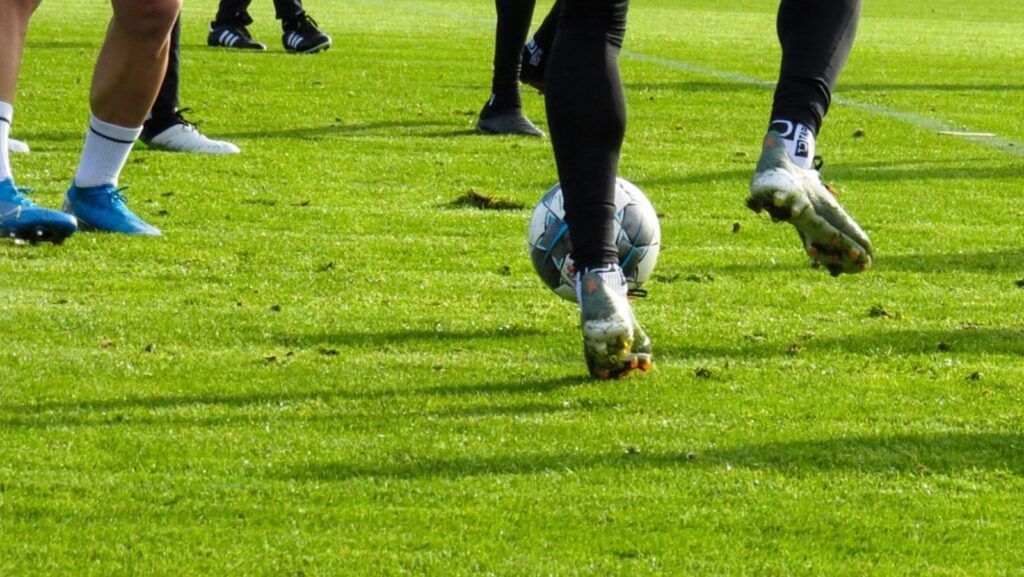
Soccer is a game that requires top players to be in fine physical condition. When you see Cristiano Ronaldo or Christian Pulisic in action, you notice that they seem to have been sculpted from clay, with not an ounce of body fat on them. That’s the sort of dedication that marks soccer’s richest players from the rest.
However, when the soccer career ends, players can let themselves go a bit. Cristiano Ronaldo is a player known around the world, but once upon a time, another Ronaldo was the world’s top player – a Brazilian striker. He suffered from significant weight gain after hanging up his cleats, and he’s not the only one. Another Brazilian, Ronaldinho, had the same issue. The Argentinian player, Diego Maradona, also piled on the pounds once his career finished.
A little indulgence is perhaps understandable once a player finishes, but if it gets out of hand, how can they get back to a healthy weight? What options are there for frustrated former soccer stars battling the bulge, not chasing a ball?
Exercise
One of the main reasons former soccer players put on weight is inactivity. Once their career finishes, they may find work as a pundit on television, or they may have made enough money to simply live a life of luxury. It could mean a more sedentary lifestyle., which will inevitably lead to weight gain.
Some, like former LA Galaxy player Gareth Bale, take up a sport such as golf. This is a great way to battle the bulge or to help shift it. By ensuring a degree of physical activity is still part of the daily routine, a former soccer player can quickly get in shape. Golf is a good choice, but maybe daily running will suffice, or even a move into coaching.

Soccer players get used to training and routine during their career, and therefore it should be relatively easy to find that discipline again. That can also help soften the mental impact of giving up elite sports, and depression is another contributor towards weight gain through comfort eating.
Diet
The obvious option is changing diet, but this can be tough for a former soccer player. They’re used to a high-carb diet, fuelling up on foods for performance that give them a lot of energy. Sure, after playing, they may overindulge for a bit, but it can then be a challenge to eat for the lifestyle they have, not the one they used to have.
The first thing to do is make sure they’re balancing calorie intake with output. If they don’t have another pastime to burn off the calories, such as golf, then they’re going to need to adjust what they put in. Luckily, as a former soccer player, it’s likely there is a deeper understanding of working hard towards goals in place, which means it should, in theory, be easier to set a goal and work towards it.
Improving diet means cutting out much of the comfort eating that is likely to have replaced training. Players such as Ronaldinho were famed for their partying after playing, and that means high-calorie alcohol intake and fatty foods. Making a few simple adjustments, back towards the sort of diet enjoyed whilst playing, should be a good start, especially when combined with exercise.
Medication
Some former soccer players are best described as ‘big-boned’ – the likes of Swedish sensation Tomas Brolin and English defender Neil ‘Razor’ Ruddock are fine examples of this. They were never the most active on the field, and that could mean dieting and exercise were a big reach.
There’s no suggestion either player tried medical weight loss, but it’s certainly a modern-day option for those who have gained weight and struggle to lose it.

It might be the case that a soccer player’s career ended because of injury, meaning they cannot be active, and that’s where medical weight loss comes into play. Treatments such as Orlistat, a three-times-daily capsule, are becoming more popular as they become more effective. There’s also the once-weekly injection medication Semaglutide which has been approved for weight management.
Conclusion
Psychologically, the end of a soccer career, or any sports career, can be a challenge, and after a period of unwinding, weight gain is likely. Luckily, former athletes have the mental skills in place to set goals and work towards them, and underneath any excess weight, there’s still the body of an athlete, waiting to come out. Whilst soccer players might not appear at World Cups or win MLS in retirement, they can still make sure they’re fit and healthy to enjoy those tournaments and the life that top-level soccer has set them up for, without the health complications of obesity.












